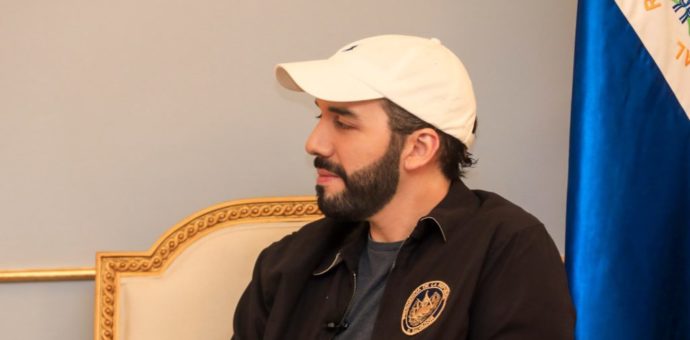In recent days, El Salvador has made headlines worldwide due to the unprecedented decision to accept bitcoin as a legal tender. The measure, approved by President Nayib Bukele, drew attention to his figure, somewhat different from the conventional image of a national leader.
Young, only 39 years old, Bukele usually performs publicly with a baseball team cap, with the flap turned backward. Of Palestinian descent, he always tried to show himself as being a close figure to the people. This image is reinforced by the fact that he is always active on social networks or actions such as his inauguration as president (2019), celebrated in an outdoor ceremony in a square in downtown San Salvador.
However, behind this accessible image, there are many political strategies. The very decision to start accepting bitcoin as a legal tender can be considered one of them.
Bukele put an end to bipartisanship in El Salvador
Since 1989, two main political parties (FMLN and Arena) had dominated presidential elections in El Salvador. However, Bukele ran as the candidate of the center-right GANA party.
To understand it better, you have to go back a bit in history. In 2012, when Bukele was only 21 years old, he was elected mayor of Nuevo Cuscatlán, near the country’s capital San Salvador. Without media attention, he began to publicize his actions on social media, and back then, he was still a member of the FMNL. In 2015 he was elected, by the same party, to San Salvador City Hall.
At the time, he refused to participate in interviews and debates, claiming that such events were intended to harm him. Therefore, he interacted with his followers through social media, making comments against corruption and the pacts of traditional parties. For his actions, in October 2017, he was eventually expelled from the FMLN.
In 2019, he was elected president of the country by GANA, but soon after legally formalized the New Ideas (NI) party. When he formed his new government, he changed all ministers, except for Nelson Fuentes, holder of the Treasury – who ended up leaving office a year later.
In 2021, in the legislative and municipal elections, the ruling New Ideas party achieved a majority in the new Legislative Assembly, which allowed Bukele not needing to formalize alliances to approve any initiative.
Controversial figure
Bukele is being investigated by the Public Ministry of El Salvador for alleged money laundering, fraud, and tax evasion during his term as mayor.
Moreover, under Bukele’s command, the country is experiencing an authoritarian escalation. Some examples are the fact that he invaded the Legislative Assembly (in 2020), imposing a US$ 109 million loan to fund the country’s security. There is suspicion that he secretly negotiated a deal with the country’s most powerful gang, the Mara Salvatrucha, relaxing prison conditions in exchange for support and crime reduction. In addition, there was also the dismissal of Supreme Court judges in May of this year.
Why did El Salvador approve bitcoin as a legal tender?
Amidst so many controversies, Bukele approves bitcoin as legal tender in the country. It was done supposedly to simplify the lives of Salvadorans who receive money from their relatives abroad and had already been using the cryptocurrency for such purpose. Actually, the decision facilitated such transactions and contributed to the population paying fewer fees to US banks.
It is a populist maneuver since about 70% of the country’s population is outside the banking system. With the approval of the Bitcoin Act, it will be possible to make purchases and pay bills with the cryptocurrency without the need to bear the bank fees.
But behind this there are undoubtedly other interests, such as El Salvador being no longer depending on the U.S. dollar, a currency it has been using since 2001. In addition, the state-owned energy company LaGeo is being prospected for bitcoin mining.







